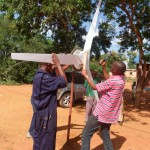 By Fran Witt, Renewable World
By Fran Witt, Renewable World
One kilowatt may not seem like a lot – some heaters in the West use this much energy every hour. But in Songambele, Tanzania, comparatively little energy is going a long way.
Renewable World, the UK based charity who work to provide renewable energy to remote communities in the developing world, is helping the off-grid community of Songambele to power itself out of poverty.
Climate change has impacted its 21,000 inhabitants, with crops becoming increasingly difficult to grow, resulting in adults and children working longer hours for smaller wages. Today, power provided by a new wind turbine is being used to improve crop yields directly by pumping water for irrigation. This enables children to spend more time at school and provides both time and opportunities for adults to expand their skill-sets.
Together with Tanzanian partners ALIN, and local wind power firm Wind Power Serengeti, Renewable World has established a wind/solar hybrid system which powers a Maarifa (information technology) Centre. In addition to solar panels, a 1kw wind turbine has been installed to power the Centre, to provide additional power for productive uses, such as access to modern information technology services. The 12 metre tall horizontal axis turbine is locally produced and is designed to cut in at low wind speeds. It produces an average of 3kwH of energy per day.
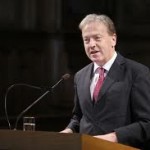
Ambassador Tom Hanney
Irish Ambassador to the European Union Tom Hanney is in the throes of a six month stint at the heart of decision making in Brussels, as Ireland currently holds the EU Presidency. The Deputy Permanent Representative says holding the Presidency is “a marathon, from January to June”. We met him to find out about Irish commitments to wind energy and why they have given so much support to Global Wind Day this year.
What motivated the Irish Presidency of the EU to support Global Wind Day 2013?
From a national point of view, wind energy is very important to Ireland. In the Irish government’s Renewable Energy Strategy, wind is identified as a key resource.
We have a lot of wind sweeping over the country given our geographical location. An increasing amount of our energy is produced from wind. We are committed to reaching our renewable energy targets under EU energy policy and we will be a net wind exporter. Overall, wind is a very important resource for Ireland and an increasing one, so therefore we support Global Wind Day.
Ireland is not on track for EU emissions targets and the reductions, but is well on track for our 20:20:20 commitment – that 20% of your energy has to be produced from renewable energy sources by 2020. We are at around 18% at the moment.
Do you think the EU needs 2030 renewable energy targets, similar to the 2020 targets?
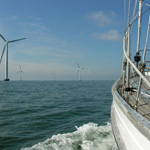 The 1 May celebrations in Europe last week were tainted by historically high unemployment levels, a miserable macroeconomic outlook and a battered climate and energy policy. The challenges facing Europe’s economy are many. But it is beyond doubt that a thorough modernisation of our energy supply remains an important part of the solution.
The 1 May celebrations in Europe last week were tainted by historically high unemployment levels, a miserable macroeconomic outlook and a battered climate and energy policy. The challenges facing Europe’s economy are many. But it is beyond doubt that a thorough modernisation of our energy supply remains an important part of the solution.
Every single day the EU spends almost a billion Euros in oil imports. This is far from being the best way for Europe to strengthen its competitiveness, public finances, employment and security of supply. At the same time, an outdated and poorly connected electricity grid continues to impose unnecessarily high energy prices on businesses and consumers.
In many Member States the economic crisis has led “cheap energy” to become a mantra for business and policy makers. I couldn’t agree more. Accordingly, it is all the more important that the setting of energy prices is based on fair and transparent accounting methods. Therefore the cost of pollution should, obviously, be included as should the hidden subsidies from which both fossil fuels and nuclear energy benefit so hugely.
We must keep in mind that what is cheap energy today will not necessarily remain cheap tomorrow. In the past, we have time and again underestimated the development of the oil price. Given that the European continent possesses no significant fossil energy reserves, and is already importing more than half its energy, it would be a high-risk game, both from an economic and from a security policy point of view, to base our long-term energy strategy on what is cheap here and now.
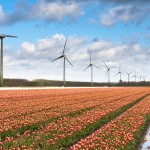 The Dutch government recently published its draft plans aimed at better managing the growth of onshore wind power in the country to the satisfaction of the Dutch Wind Energy Association (NWEA).
The Dutch government recently published its draft plans aimed at better managing the growth of onshore wind power in the country to the satisfaction of the Dutch Wind Energy Association (NWEA).
The plan sets out how at least 6,000 megawatts of onshore wind power can be installed in the Netherlands in the coming years. New installations are “crucial” if the country is to meet its 2020 renewable targets, according to the NWEA. The recently elected coalition government pledged earlier this year to source 16% of the country’s final energy consumption from renewables by 2020. This is a slight increase compared to the country’s 14% target under the EU renewables directive, but will mean a significant increase in the country’s wind power given that only 2.4 GM of energy are currently provided by wind.
For the past two years, differences of opinion between the Dutch government and the provinces over who has control of certain areas of land has stifled growth in the wind sector. An administrative agreement between the central and regional authorities at the start of the year, followed by plans setting out how land can be used for onshore turbines, means that projects that have been stalled can get back on track and “we can make up for lost time,” says Ton Hirdes, director at NWEA.

Thomas Becker, EWEA CEO.
Commenting on the call from BusinessEurope Director General Markus J Beyrer on EU energy policy, European Wind Energy Association CEO Thomas Becker had this to say;
It sounds a little old fashioned when BusinessEurope claims that fighting climate change is not compatible with cost-competitiveness and security of supply. What have they been doing for the last 15 years? What planet were they on?
The main problem of the energy situation today in Europe is the massive subsidies – still in 2013 – going to fossil fuels and nuclear.
If that was corrected and with a properly functioning electricity market there would be no discussion of what choice policy makers would make for the energy mix.
But even without such a correction, wind energy is already cheaper than nuclear, and in an increasing number of locations already cost competitive with new gas and coal.
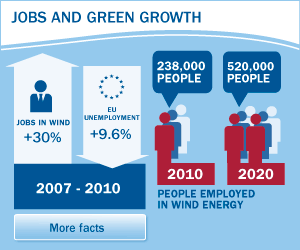







 Comments
Comments



